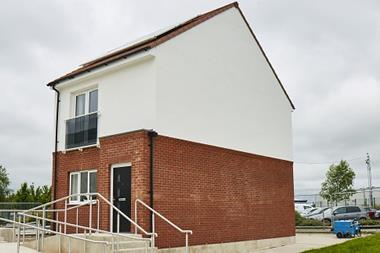It’s all too easy to conform to the consensus view and protect the status quo in business; something our industry is particularly guilty of.

Conforming may feel safer but it ignores one racing certainty - that the world continues to change and at some point our old ways will become outdated. This is why industry leaders need to embrace and encourage positive disruption.
The UK is in the midst of a housing crisis but the industry’s 19th-century practices prevent enough homes being built to meet the supply/demand imbalance.
The valuation industry for real estate also discourages innovation and evolution in the sector, with owners hamstrung by concerns over a hit to values if they agree to the shorter leases occupiers increasingly demand.
A fit-for-purpose process would shift the focus on to an owner-occupier relationship that embeds appropriate flexibility for all parties, with value placed on good management skills and associated high occupancy.
Disruption has become the blueprint for activity across Legal & General. Through partnerships with Legal & General Capital, LGIM Real Assets is in a unique position to drive forward progress at the earliest stages of the decision-making process.
This means we can be proactive, not reactive, and as such agents of change in the market.
This can be seen in our flagship Build to Rent Fund, through which we will build thousands of homes to contribute to solving the UK’s housing shortage while providing a professional level of service to those customers who prefer to rent.
Continued investment
However, to make positive disruption act as a force for good there are still some challenges that we need to be upfront about. If we are to displace traditional methods of construction and have a meaningful impact, the industry must recognise that there needs to be continued investment.
Modular building is quicker and more efficient than traditional housebuilding, delivering homes in a matter of weeks rather than years, to consistently high standards.
The manufacturing process is also energy and material efficient, ensuring an economically viable and sustainable solution to deliver much-needed capacity for the industry. More output from the modular approach is inevitable, which is why Legal & General has invested in the supply chain already.

In addition, new technology can assist us; the mountain of data available can improve outcomes. Again this requires investment, but if we can hold a long-term view and embed new technologies into our investments now, we will reap the benefits in the future. This means we need to recast what it means to be an owner of property.
Investors in real assets must consider themselves as long-term capital partners, playing an active role in forming connections between tenants, customers and - most importantly - communities.
For too long ‘progress’ in the sector has fostered short-termism and narrow thinking, allowing holders of property assets to be nothing more than passive providers of homogenous space. Our market needs to concentrate more on providing a service to those with exceptional needs.
At LGIM Real Assets, we are focusing on disrupting across the totality of the built environment
At LGIM Real Assets, we are focusing on disrupting across the totality of the built environment. At our regional regeneration schemes in Bracknell, Salford, Cardiff, Leeds and Newcastle, we aspire to deliver sustainable, long-term impact by providing purpose-built homes with a progressive view of clean energy.
Our industry is at risk of stagnation caused by a failure to innovate. We need to embrace disruption, be courageous and find new ways to enhance the built environment while improving returns for stakeholders.
We are going to be confronted by a wave of fundamental change; the choice is whether to surf the wave or drown.
































No comments yet